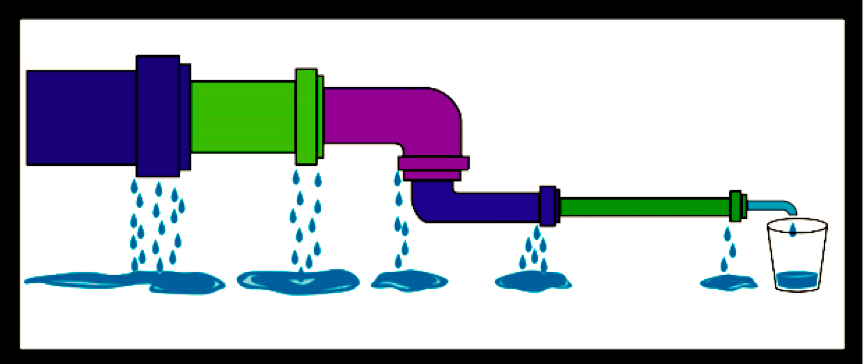We do not need to plug leaks in the pipeline, we need to interest more women and underrepresented minority students in the first place.
Women are underrepresented in pSTEM (physical Science, Technology, Engineering and Math) but a recent study out of Northwestern University, The bachelor’s to Ph.D. STEM pipeline no longer leaks more women than men: a 30-year analysis, suggests that it is not due to a pipeline that leaks at the postsecondary level.
While the leaky pipeline metaphor partially explains historical gender differences in the U.S., it no longer describes gender differences in the bachelor’s to Ph.D. transition in STEM. “The gaps in persistence have already closed,” says researcher David Miller of Northwestern.
Careful analysis of 30-year trends in STEM indicates that the gender gap closed completely in the 1990’s. Men still out number women in STEM 3:1, but this is not explained by gender bias in the education pipeline. We do not need to plug leaks in the pipeline, we need to interest more students, particularly women and underrepresented minority students, in the first place.
Miller worries that focusing on the leaky pipeline model will divert money and attention from the necessity of getting more women into STEM right out of high school – at the undergraduate level. Improving such conceptual models could also help policy makers target when and where to allocate limited resources for increasing gender diversity in STEM fields. It has been argued that the leaky pipeline is ill suited to understand the STEM identity formation for women and underrepresented minorities.
A reconceptualization, one that would provide policy makers with a wider range of strategies, would be a network of multiple pathways in and out of STEM. The notion of many pathways better describes the multiple entry points into STEM for undergraduates.
** Researchers David Miller of Northwestern and Jonathan Wai, a Duke University Talent Identification Program research scientist, focused on pSTEM (physical Science, Technology, Engineering and Math) fields and excluded social sciences and life sciences.
The study, “The Bachelor’s to Ph.D. STEM Pipeline No Longer Leaks More Women Than Men: A 30-Year Analysis,” will be published in Frontiers in Psychology.

